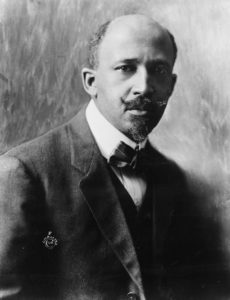This article was originally published in June 2016 at http://www.rodlampard.com/, and has since been edited slightly.
The solidarity of suffering is a field of mutuality that lies unexplored. It’s all too easily drowned out by the noise and antipathy of protest. The online activity of the masses, from anonymous activist to celebrity conformist, misses the opportunity to untie the tangled pathos that cements individuals into collectives, and brands them as possessions of “party-lines.”
Not all human suffering is equal, but all human suffering is equally painful. To exist as if another person has no idea about what suffering is, is to dismiss suffering.
Take for example, a family with a history filled with conflict and abuse. One family member decides to function as though they are the only ones to have suffered. This person persists, painting themselves into a narrative of victimisation.
The suffering of other innocent family members is ignored, the family member who has taken control of the narrative then easily inserts others into a story of oppression, oppressor, sabotage and villainy. The victim becomes the villain.
Sympathetic listeners are won over. Without a thought to how deep the actual story goes, one side is exalted. The other is demonized. The truth itself becomes a victim. As the self-serving deception expands, the one who controls the narrative signs on more and more supporters. Attempts to counter this with the truth are quickly neutralised, because of the villain’s consolidation of power through his or her control of the narrative.
Other victims are denied a voice. Dismissed and labelled as liars. Backed into a corner, these victims may try to respond, but their self-defence is treated with suspicion, and is used against them to support the prevailing narrative of victimisation. A narrative now so water tight that, in order to keep the spotlight away from the truth, new dramas have to be orchestrated. Conflict is either manufactured or manipulated in order to serve the self-interests of those who control the narrative.
This victim’s-turned-villain’s broken throne is secured by the continuation of suffering. Thus, the cycle of abuse continues. Same shite. Different day. Different year. Different person. In this situation, ethnicity, skin colour and creed are all irrelevant. The family described above could be anyone’s.

In his 1903 book, ‘The Souls Of Black Folk’, William Edward Burghardt Du Bios, who later became a Communist, reflected on the African-American position in post-Proclamation of Emancipation America. One of the statements he made resonates:
‘It is a peculiar sensation, always looking at one’s self through the eyes of others […] being measured by amused contempt and pity.’[i]
Although spoken in the context of slavery in America, these words speak for a good portion of the population. They almost perfectly describe the feelings of people who’ve become victims of the narrative of victimization.
From the bullied youth, to the oppressed members of a family, there is a resonance that moves from the suffering of African-Americans out to all the down-trodden. From this resonance comes a basic solidarity of suffering. It’s from here that we arrive at a point, where understanding the pain of others helps us move beyond our own.
In recent months (years) we’ve seen the rise of #blacklivesmatter. A cause not without justification, but its presence has always coincided with the caveat from those who’ve read history and heed it. It’s a cause that must have as its inevitable conclusion, #humanlivesmatter.
If it doesn’t, the movement slides into a kind of reverse racism. It fails to mature beyond protest to justice to reconciliation. If this happens, “black lives matter” will inevitably morph into “only black lives matter,” and the positive aspects of the movement’s cause will be lost.
Bitterness, manipulation of the truth and an irresponsible self-defence binds us to toxic power brokers.
That the world knows more about the kneeling protest of American NFL star, Colin Kaepernick, than they do about his cause for kneeling, raises lots of questions about Colin Kaepernick, and any who would choose to follow his example.
When a social cause is overshadowed by the fame of the person at the centre of it, that social cause is lost.
Asian, Latino, Indigenous, Black, White; as the Biblical witness tells us, human equality before God is this: “all have fallen short of the glory of God.” (Romans 3:23). Rich, poor or otherwise inclined, we are all on an equal footing, saved not by works, but by God’s work, who calls us to respond with: “1. Love God with all your heart, with all your soul, with all your mind and with all your strength. 2. Love your neighbour as you love yourself.” (Mark 12:28-34).
This allows us to stop and recognise each other’s suffering. To recognise that most of us have experienced some degree of suffering on one level or another. This also allows us to identify a real oppressor from an imagined one. It disarms any and all attempts to outbid each other, in a never-ending bidding war, about who has suffered the most. It stands as a reminder that when a real oppression presents itself, we can be ready to meet that oppression with a strong, well-reasoned, and just opposition.
The solidarity of suffering counters racism and replaces it with empathy. It empowers a reasoned turn towards justice, and steers us towards the goal of total racial reconciliation through a dialogue of differences mediated by a recognition of the common ground that is created by shared experiences.
From what I’ve read of Du Bios’ early work so far, I think he’d agree.
How do we obtain this? For the Christian it means putting Jesus Christ at the head and centre; freedom in Christ alone. For others, it’s an invitation to participate in liberation made up of authentic love, reconciliation and forgiveness; ‘authentic humanism; without the need for recourse to ideological systems in order to love, defend and collaborate in the liberation of man.’ [ii]
Whereby ‘we cry out once more: Respect man! For man [and woman with him] is the image of God.’ [iii]
That Biblical witness tells us that His suffering was carried by Him for humanity, in exchange for the liberation of humanity. The solidarity found in His suffering saves us from ourselves, and connects us to each other.
‘In song and exhortation swelled one refrain—Liberty; in his tears and curses, the God he implored had Freedom in his right hand.’[iv]
What can I learn from this?
My past does not define me. Understand your past, but don’t let it define you, even if others try to keep you living in it.
‘..his own soul rose before him, and he saw himself,[…]to attain his place in the world, he must be himself, and not another.’[v]
References:
[i] Du Bios, W.E.B, 1903 ‘The Souls Of Black Folk’ Coterie Classics, Dover Publications
[ii] Wojtyla, K. (Pope John Paul II), 1979 Address to the Third General Conference of The Latin American Episcopate
[iii] Wojytyla, ibid. 1979
[iv] Du Bios, 1903
[iii] Du Bios, 1903
1.Thessalonians 5: ‘Since we belong to the day, let us be sober…encourage one another, build one another up, be @ peace among yourselves…pray without ceasing…test everything; hold fast what is good.’ (Paul)










